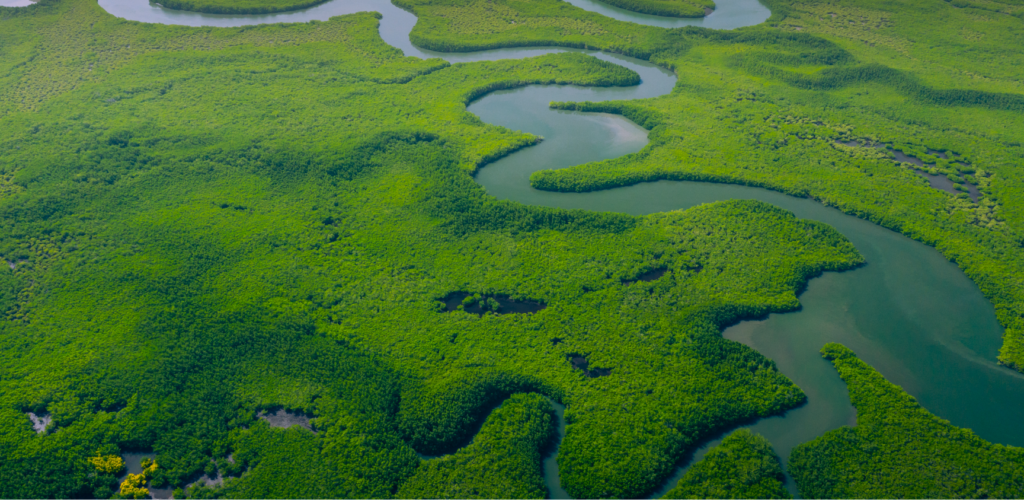Rainforest Foundation US’s Newsletter four times per year and members-only monthly updates from our program staff

“Rainforest Foundation US is the best place I’ve found for making climate change-related donations. They center the disenfranchised, actively work to improve themselves, and their Rainforest Alert system is more cost-effective than any climate change amelioration efforts I’ve seen. They also seem like an organization of caring people who are in it for the right reasons. Not much more I can ask for.”
– Jon, Treehouse member
Acres of rainforests monitored and protected through Indigenous-led monitoring programs
Indigenous and local communities supported in the Amazon and Central America
Acres of lands rights advanced through mapping of community boundaries

Rainforest Foundation US uses a holistic approach when working with our Indigenous partners that includes supporting them in gaining title to their traditional lands, using technology to monitor for signs of deforestation, and improving governance structures to enhance their organizational capacity.
Annual program costs divided by the area of rainforest we’re protecting with our Indigenous partners works out to only $2 per acre per year!
Protecting rainforests is a year-round effort. Your monthly gifts enable us to provide critical, continuous support to our Indigenous partners who are on the frontlines of rainforest protection.
Monthly giving allows us to better plan for the future and respond to ever-changing circumstances in the Amazon and Central America. Every monthly donation has a substantial, long-term impact to help Rainforest Foundation US tackle some of the world’s biggest issues: human rights violations, rainforest protection, and the climate crisis.
Yes! We offer donations that repeat weekly, bimonthly, monthly, quarterly, semiannually, and annually. Most of our donors can adjust the frequency of their gift via their donor portal at this link. If you experience any difficulties, please email [email protected], and we’ll be happy to help you set up the recurring donation or adjust the frequency of your gift.
Most donors will be able to change or cancel their donations via their personal donor portal at this link. If you have trouble, email [email protected] for assistance.
Thank you so much for wanting to help! If you’d prefer to give to RFUS in other ways, please check out our “Ways to Support” page for more information.
Volunteer opportunities are rare, but feel free to email [email protected] with your skills and availability. We also hold a monthly virtual Donor Advisory Group which is open to all donors—email [email protected] for an invitation.
Another great way you can support Rainforest Foundation US is by holding a fundraiser in your community. See our fundraiser page for advice on how to transform your favorite activity into a benefit for the planet!
We’re Sofiya and Ziv and we’re the people behind Treehouse.
We let you know the impact your donation is making, answer your questions, and take your suggestions.

Learn about how we support our Indigenous partners in protecting rainforests.
Read about critical victories and challenges with rainforest protection and Indigenous peoples’ land rights.
Transform your favorite activity or an upcoming celebration into a benefit for the rainforest!
Take Action NOW on the climate crisis, rainforest protection, and Indigenous peoples’ rights
Are you interested in other ways to support us?
Learn more here.



Get news, updates, and stories from the rainforest—straight to your inbox.
Land Acknowledgement
Rainforest Foundation US recognizes and honors the original peoples of the land on which our headquarters is based in Brooklyn, New York: The Ramapough Munsee Lenape, who have cared for these lands and waters for generations. We ask the Ramapough Munsee Lenape people’s permission to be here as their guests and ask their blessing for the good continuation of our work.